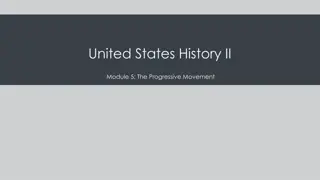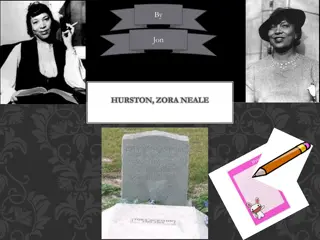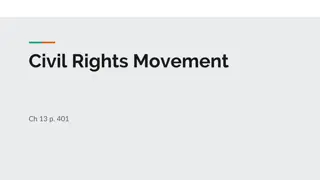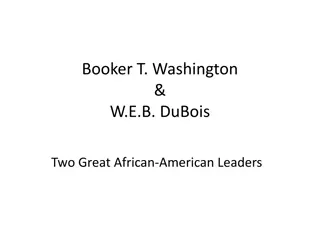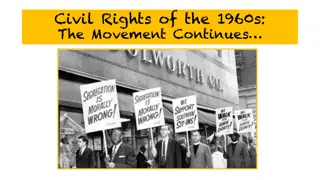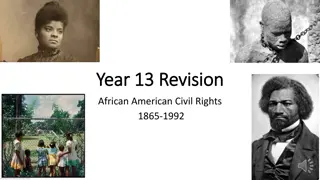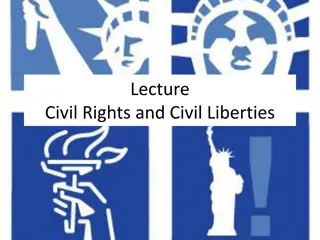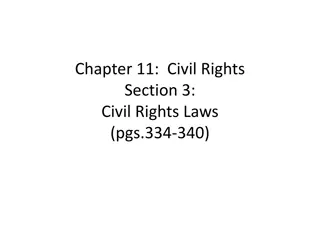African American Civil Rights Leaders and Progressivism
African American leaders such as W.E.B. Du Bois and others played crucial roles in the fight for civil rights, challenging racial segregation and discrimination. The establishment of organizations like the NAACP and movements like the Niagara Movement showcased the social and political origins of Progressivism. While the Atlanta Compromise highlighted debates over economic goals and educational opportunities, leaders like Du Bois emphasized the importance of demanding full political rights and a liberal arts education for African Americans.
Download Presentation

Please find below an Image/Link to download the presentation.
The content on the website is provided AS IS for your information and personal use only. It may not be sold, licensed, or shared on other websites without obtaining consent from the author. Download presentation by click this link. If you encounter any issues during the download, it is possible that the publisher has removed the file from their server.
E N D
Presentation Transcript
COS 2b Evaluate social and political origins, accomplishments and limitations of Progressivism.
Black civil rights organization WEB DuBois and other African American leaders met at Niagara Falls to demand full political rights and responsibilities for African Americans. Called for oposistion to racial segregation and disenfranchisement Led to founding of NAACP
National Association for the Advancement of Colored People 1909 African Americans demand full political rights and an end of lynching s and racial discrimination. Against segregation Ensure African Americans their constitutional rights
Believed racism would end once blacks acquired useful labor skills and proved their economic value to society Headed the Tuskegee Normal and Industrial Institute by 1881 Tuskegee- aimed to equip African Americans with teaching diplomas and useful skills in agricultural, domestic, or mechanical work
Atlanta Compromise: Achieve Economic goals Southern blacks would submit to white political rule, while Southern whites guaranteed that blacks would receive basic education and due process in court
First African American to receive a doctorate from Harvard University Strongly disagreed with B.T. Washington s gradual approach Credited as founder and leader of the Niagara Movement
Later became the editor of the NAACP newspaper African Americans should Demand rights (voting) to gain full equality Challenges Atlanta Compromise by insisting that blacks should seek a liberal arts education so that the African American community would have well educated leaders
Negro Nationalism: glorifies black culture and traditions Promotes black pride and unity Immigrant from Jamaica who demanded that African Americans should build a separate society Founded the Universal Negro Improvement Association- 1914
Encourages education to advance yourself economically and politically Wants to separate and declare independence from whites Create a settlement in Liberia Led to a sense of pride and hope in African Americans.
Father of Black History Challenged white scholars view of African American history as being unworthy to study 1915- founded the Association for the Study of Negro Life and History Established Negro History week now known as Black History Month
Helped check the child labor abuses Push for tax funded high schools, free textbooks Normal Schools: Teacher training schools Kindergartens formed Gave a lot of opportunities to children, but not adults Urban schools better than rural Literacy rate better
Instill discipline and good work ethic Americanization Vocational and technical schools helped students learn a skill Colleges and Universities multiplied Women s education and African American education lagged Free public libraries opened to help people learn to read

 undefined
undefined

